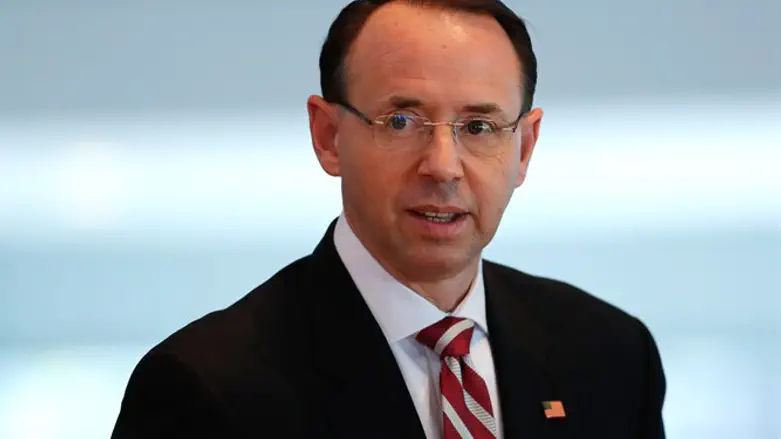
US Deputy Attorney General Rod Rosenstein on Monday submitted a resignation letter to President Donald Trump indicating he will leave the job in two weeks, The Washington Post reported.
The resignation goes into effect on May 11.
Rosenstein appointed special counsel Robert Mueller to investigate Russian interference in the 2016 presidential election.
His departure had been expected since the beginning of the year, but the date was repeatedly pushed back as Mueller wound down his investigation and compiled a report detailing his findings.
In his resignation letter to Trump, Rosenstein praised the president for his personal charm and policy goals.
“As I submit my resignation effective on May 11, I am grateful to you for the opportunity to serve; for the courtesy and humor you often display in our personal conversations; and for the goals you set in your inaugural address: patriotism, unity, safety, education, and prosperity, because ‘a nation exists to serve its citizens’,” Rosenstein wrote, according to The Washington Post.
"We enforce the law without fear or favor because credible evidence is not partisan, and truth is not determined by opinion polls," he added. "We ignore fleeting distractions and focus our attention on the things that matter, because a republic that endures is not governed by the news cycle."
Several weeks ago, US Attorney General William Barr released a redacted version of the Mueller report on Russian interference in the 2016 presidential election.
Last month it was revealed that Mueller’s investigation had found no evidence that Trump or his campaign colluded with the Russian government to alter the outcome of the election.
Mueller, a former FBI Director, was appointed to oversee the federal investigation into alleged Russian interference in the 2016 election.
His appointment came after former Attorney General Jeff Sessions recused himself from any involvement in the Russia investigation due to his role as a prominent campaign adviser and surrogate.
Russia has denied any interference in the 2016 election. Trump has acknowledged intelligence information indicating that Russia meddled in the 2016 presidential election, but has rejected the idea that his campaign colluded with Russia in the meddling.